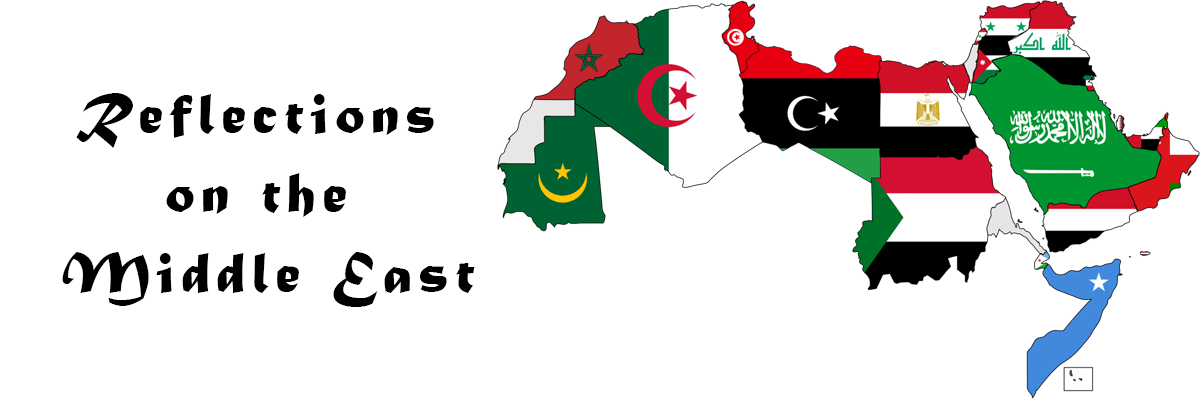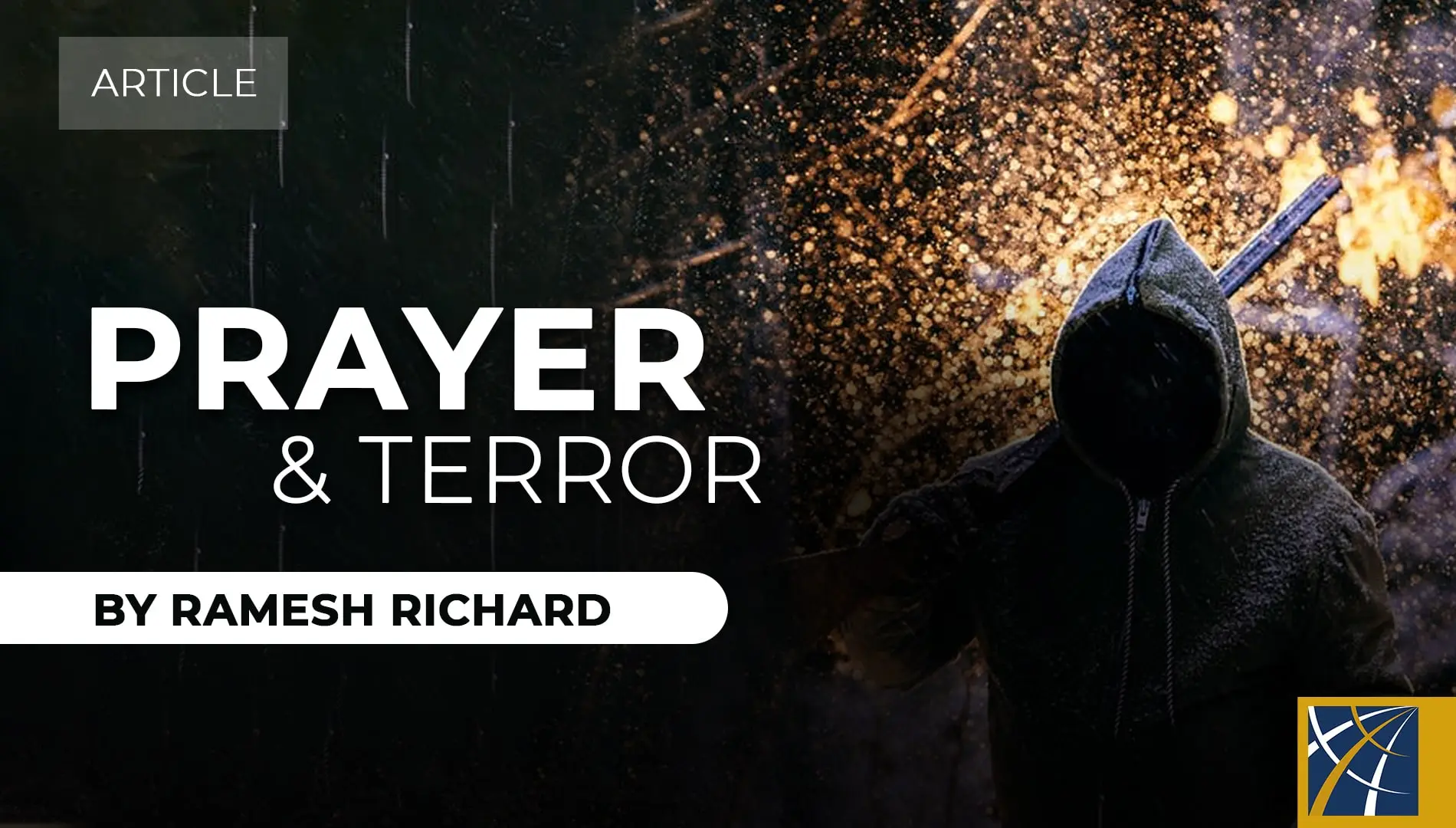by Ramesh Richard
The Middle East is arguably the nerve center of the world’s future. Dr. Ramesh Richard traveled to the region earlier this year, and in a recent interview with The Christian Post, provided some biblical and theological perspective on the escalating situation.
The interview, which includes a five-fold grid for the western Evangelical church’s stand regarding the Middle East, has received a positive response. As a friend has said, “I believe American Christians desperately need such a comprehensive, Christ-honoring Middle East purpose statement.” In this spirit, we wish to share with you some of Dr. Richard’s insights.
CP: What is your experience with the Middle East region?
RR: My friends and brothers fall on several sides of national and social divides. The situation is intractable socially and nationally, but hopeful theologically.
CP: What do Western Christians or the Western people in general most misunderstand about the ongoing Middle East conflict?
RR: Generally, Westerners have either given up, don’t care, or wish for quick solutions. Those especially from younger cultures fail to grasp the long-term intensity and complexity of the conflict.
More informed Christians realize the irreconcilability—barring an acknowledgement of an earthly, personal arrival of a reconciling God—of the transcendent, monotheistic convictions undergirding the dominant parties in these conflicts. The faith of the Bible invites all peoples to welcome the Lord Jesus as that personal arrival of God—in His first-coming as human Savior and in His last-arrival as humanity’s Judge—who brings evenhanded justice for Jews and Gentiles alike and allows any to have rights of earthly possession and a blessing which extends forever.
CP: What is the role of Western churches when it comes to responding to the Middle East crisis?
RR: Evangelical Western churches have few substantively helpful options, but I do see a five-fold grid in which they must operate. In terms of what we are for, rather than what we are against, our response must be:
1) Pro-God. We must aim for His priorities for the entire planet, especially concerning human salvation.
2) Pro-Messiah. Our ultimate commitment is to the Lord Jesus Christ, with all other identities and commitments as secondary.
3) Pro-Church/Christians. We must do good in its fullest sense, especially to the “household of faith.”
4) Pro-Life. Doing good to all people (Gal. 6:10) means rejecting the dehumanization, brutalization and marginalization of any people anywhere. This includes fostering principles of a biblical humanity through supporting social-political structures that are more conducive to life, peace, dignity, godliness, freedom, and so on.
5) Pro-World. We work for the very best of the whole world in Christ’s name and spirit. To go in Jesus’ name and not in His spirit (or vice versa) is to abuse the Gospel. The entire region—Israel and all her neighbors—is currently in unbelief. From the perspective of the past, we agree with the Lord Jesus, who said that salvation is from the Jews (John 4:22); with the Old Testament that prophesies an integrated priority for the region (Isaiah 19:18–25); and with the New Testament, which holds an earthly future for Israel despite her current unbelief (Rom 9–11). Hence, we neither negate nor diminish the future of Israel, nor view her as replaced or fulfilled by the Church now. And yet her future priority is only for her original purpose as a channel of global blessing, to be finally accomplished by the returning Messiah-King. Even God does not blindly baptize all Israeli action as permissible, especially if Israel fails to dispense blessing to her neighbors. God’s blessing does not mean lack of moral accountability to Him. God brings judgment on Israel whenever neighbors threaten her existence, but He does not abandon her without a future. That is, the Bible is pro-Israel (past and future), but not pro-Israeli (in the present). So must we be.
The Bible is pro-world, pro-life, pro-Christ, pro-Christians, pro-Church. So will we be. The prayer for the peace of Jerusalem (Ps. 122:6) includes all her inhabitants first being made right with God by belief in the Messiah-Jesus and then their living with peace among themselves, pursuing justice and righteousness.
CP: In what ways can Western Christians reach out to followers of Christ in the Middle East who are suffering right now?
RR: Really in the same way followers of Christ reach out to fellow believers facing extreme deprivation, social oppression and natural disasters anywhere. We do all the good we can for immediate needs of safety and then structurally through socio-political processes. We lessen suffering by strengthening the on-site pastoral leaders. If we can strengthen them, their long-term, more relevant, and often much less expensive ministries overflow into their congregations, which become witnesses to their communities and to displaced refugees.
CP: How can Christian leaders proclaim God’s message of peace and hope in a region where there are many conflicting ideologies, some, like ISIS, that are violently hostile to Christianity?
RR: Presumably at great sacrifice. But Christian leaders are seizing on the distress of copious dominant worldview participants and victims for the Gospel’s sake. On this trip, I found the local ministry perspective both strategic and sacrificial. One said, “We have been praying so long for this region to become softened to the Gospel. Just as God confused and brought down the hegemony of Communism with unprecedented opportunity for the Gospel, it is again happening in a region that was seen as impenetrable.” A steady and irreversible movement toward the Lord Jesus has begun among those of the majority convictions. Another leader noted, “We are born here, live here, and will die here. And if it means death so that the Gospel can be promoted, it is worth the sacrifice of our lives.” These are the current heroes of the Faith.
CP: What do you see for the future of Christianity in the Middle East?
RR: All these Near East and the Middle East countries are within God’s plan for the world—from the dawn of salvation to the consummation of His plans. This is the region closest to the Lord Jesus, racially and geographically, but unfortunately farthest from Him spiritually.
Pastoral health affects church health, and church health affects societal health. Our current, decade-long human capital campaign includes all the countries in the Middle East region, and we have had the privilege of training pastors there over the past two decades.
God willing, the 2016 Global Proclamation Congress for Pastoral Trainers will gather a large and proportionate group of pastoral trainers from both the formal and non-formal sectors in the region to connect, unite and to strengthen them as they serve in hugely difficult environments. To mobilize delegates, I visited the Middle East region first, convinced that if we could get good representation from this hardest of all places, the rest of the world’s recruits would follow.
More information about the Global Proclamation Congress for Pastoral Trainers can be found on the official website, www.gprocommission.org.






